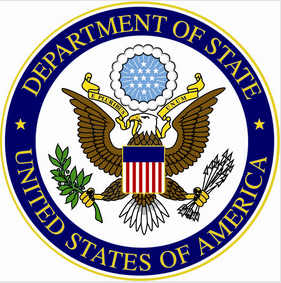It's that INCSR time of year again...
Chris Hamblin, Editor, London, 8 March 2016

The US State Department has published this year's International Narcotics Control Strategy Report, which contains the usual list of countries of 'primary money-laundering concern.' One country is conspicuous by its absence.
Caribbean centres feature prominently on this year's list, as one might expect. There are 13 of them: Antigua and Barbuda; the Bahamas; Belize; the British Virgin Islands; the Cayman Islands; Costa Rica; Curacao; the Dominican Republic; Guatemala; Haiti; Mexico (riven by drug wars); Panama; and St Maarten (the Dutch half of the island, which shares an unpoliced border with St Martin, the French colony on the other side).
Drawing from elsewhere in the offshore world, the State Department lists many of the 'usual suspects': Cyprus; Guernsey; the Isle of Man; Jersey; Liechtenstein; Luxembourg; Macau; the Philippines; Singapore; and Switzerland. Vanuatu, once an old favourite, is no longer on.
Then come the world's great powers. INCSR is fairly unique in that its reports (full of mistakes and vulnerable to national prejudices though they may be) come from investigators in the field. This compels it to list the countries where money-laundering takes place the most - as everybody in the business knows, this happens mainly onshore. It is not a surprise, then, to see established economic powers such as the United Kingdom, Spain, Russia, Holland, Japan, Germany, France and Canada on the list. Newer economic powers are there, too - Brazil, China, India, Indonesia and Taiwan featuring prominently.
Then there are the failed or failing states, either riven by civil war or pock-marked by American invasions, sanctions and blockades. These include Venezuela, the Ukraine, Turkey, Somalia, Israel-West-Bank/Gaza, Iraq, Iran and Colombia.
One state is left off the 65-strong list, however. This state used to head the list up every year during the administration of President Bush but, since Obama took over, does not appear as a country of primary money-laundering concern at all. Readers might already have guessed that, even though all the great economic onshore powers are on the list, the United States has let itself off.
How, the onlooker might ask, has the USA changed its character as a venue for financial services in the last eight years? How has it ceased to be a jurisdiction of primary money-laundering concern when other very similar jurisdictions, especially the UK, have not? Could it be that Delaware, its most embarrassing money-laundering conduit, has passed new laws to make its corporations slightly transparent in terms of beneficial ownership information? Or has the United States suddenly ceased to launder less money than the combined economies of Germany, France, Spain and the UK (all on the list) since 2008? The answer, of course, is "move along, nothing to see here."












